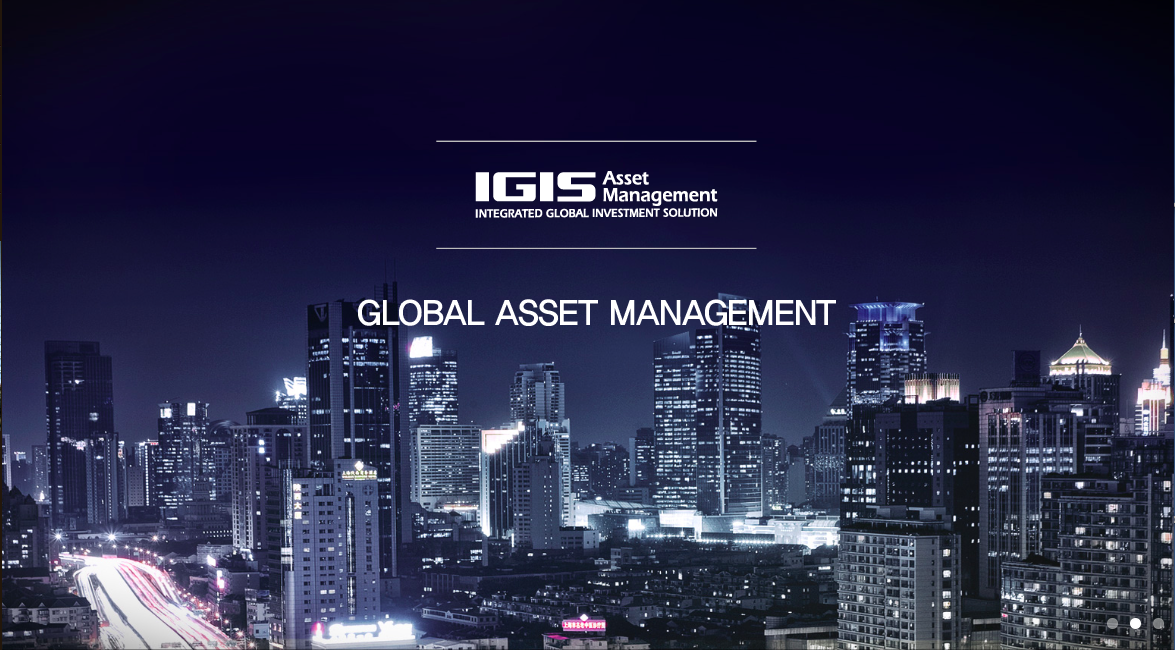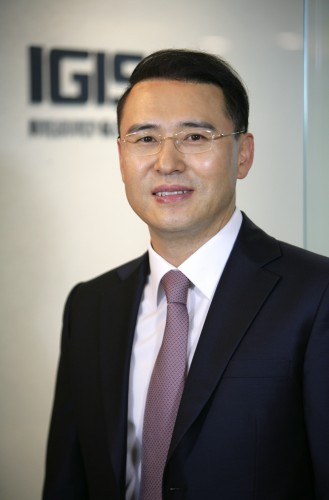 Editor’s note: In December of 2016, the Baker Program will be taking its second annual international (1st intercontinental trip) real estate trek. This year’s destination is Seoul, Korea. This post is part of a series intended to introduce our readers to several of the incredible Baker Program alumni currently working in Korea. This interview was conducted by Baker Program student Dongjoon Kim.
Editor’s note: In December of 2016, the Baker Program will be taking its second annual international (1st intercontinental trip) real estate trek. This year’s destination is Seoul, Korea. This post is part of a series intended to introduce our readers to several of the incredible Baker Program alumni currently working in Korea. This interview was conducted by Baker Program student Dongjoon Kim.
 It was a pleasure to interview Andie Young-gu Kang (Baker ’04), the current Co-Chief Executive Officer of IGIS Asset Management Co., Ltd. He is well known as a pioneer in the field of global real estate investment, establishing and implementing advanced investment systems in Korea since the mid-2000s. Besides his successful career in the industry, Mr. Kang is an associate professor of Real Estate Studies at Konkuk University. He graduated from Hanyang University with a Bachelor of Law degree and received LL.M. at the University of Minnesota Law School.
It was a pleasure to interview Andie Young-gu Kang (Baker ’04), the current Co-Chief Executive Officer of IGIS Asset Management Co., Ltd. He is well known as a pioneer in the field of global real estate investment, establishing and implementing advanced investment systems in Korea since the mid-2000s. Besides his successful career in the industry, Mr. Kang is an associate professor of Real Estate Studies at Konkuk University. He graduated from Hanyang University with a Bachelor of Law degree and received LL.M. at the University of Minnesota Law School.
Career in the Real Estate Industry
Please tell us about your company.
Founded in May 2010, IGIS Asset Management (“IGIS”) is an integrated real estate investment and asset management firm based in Seoul, South Korea. Over the past six years, IGIS has grown to become the largest real estate investment firm in South Korea in terms of AUM, currently managing about $10 billion of real estate assets composed of 83 properties located around the globe.
Since inception, IGIS has produced outstanding results for its investors over four realized investments, generating a Gross IRR of 18.6% / Gross Equity Multiple of 1.8x on $180 million of invested equity. IGIS has been recognized as an experienced fiduciary, managing capital on behalf of sophisticated institutions, including 71 institutional investors such as public and private pensions, insurance companies, mutual aid associations and global financial institutions.
The firm is supported by 88 investment and asset management professionals, the largest dedicated real estate team in South Korea, with deep expertise and capabilities spanning risk management, sourcing, underwriting, deal execution and leasing.
For more information about IGIS, please visit our website at http://www.igisam.com/en
What is your role in the company? Please tell us about your career path before joining a current company.
I hold the title of Co-CEO and President of IGIS Asset Management. In that role, I am responsible for directing strategic initiatives of the firm’s global real estate coverage. I joined IGIS in 2015 as a Co-CEO.
Prior to joining IGIS, I was the Head of Global Real Estate at National Pension Service, where I was a founding member of NPS’s global real estate businesses. I oversaw over $15 billion assets under management at NPS within all risk spectrums and in various investment schemes. Previously, I was with Samsung Everland, working for their Real Estate and Legal divisions.
You have experience working in the public and private sectors. Please tell us if there is any difference in terms of investment strategy, working culture, etc. between them.
The ultimate goals of public and private real estate fund managers are the same. It is to pursue the best available risk-adjusted returns for their investors. But when it comes to details, there are huge differences.
In the public sector, the role of investment manager is mainly to manage the real estate portfolio in an overall fund, which is composed of fixed income, equity and alternative asset classes. I think the most important qualification to be a successful manager in the public sector is the ability to select the best investment managers/operators, not the best projects. Working harmoniously with top-tier managers/operators in the market to satisfy the goals of the real estate program of a public fund is the essence.
On the other hand, in order to be a successful investment manager in the private sector, it is essential to have in-depth knowledge and experience about real estate fundamentals. As the real estate managers working on behalf of institutional/retail clients, they will be ultimately responsible for the performance of individual projects/funds.
Life at Cornell
Why did you choose Cornell? What is the most essential value that you brought from Cornell?
The Cornell Baker Program has been one of the most successful programs in the real estate industry in South Korea mainly because of its tight-knit alumni network. I also love the program since it provides a variety of courses not only for finance and investment, but also for architecture and construction, which are fundamental to truly understand the function and purpose of real estate. For me personally, it gave the opportunity to change my career to real estate investment from a legal profession.
Regarding the Seoul Trek
Please tell us about the Korean real estate market.
The capital market in the Korean real estate sector has a comparably short history and has experienced rapid growth with the globalization of the market, triggered by the Asian Economic Crisis in the late 1990s. Prior to the Asian Financial Crisis, the Korean real estate transaction market was mainly led by a few wealthy private individuals seeking stable long-term income, in addition to domestic conglomerates and large multi-national corporations acquiring properties for corporate purposes. The real estate capital market developed as domestic companies in financial distress disposed their properties to institutional investors, such as banks and foreign opportunistic funds, together with regulatory changes imposed by the government in response to distressed economic conditions and the entry of foreign financial institutions.
In the early 2000s, the domestic real estate capital market further developed and expanded with the introduction of real estate investment vehicles such as the real estate investment trust (REIT) and real estate funds (REF). Active investments across diverse asset profiles from domestic and foreign institutional investors invigorated the real estate capital market, and by the end of the decade, substantial domestic market demand was established to withstand the Global Financial Crisis. In the absence of foreign players during the Global Financial Crisis, the capital value and transaction volume for domestic real estate properties continued to increase with intensified competition among domestic investors for core products.
In recent years, the Korean real estate market has developed into a mature market with limited opportunistic products. Many of foreign investors have re-entered the domestic market in search of core products as the global economy has recovered. As the capital value for core products continues to increase due to limited market size and extended competition among domestic core investors, selective foreign investors have started to focus on value add opportunities, deviating from traditional core and opportunistic investments.
Any advice or message to Baker students for the trip?
South Korea (especially Seoul), with Japan and Australia, is one of the core real estate markets in Asia. I hope you will enjoy exploring the very active city with a population of ten million people, and will make pleasant memories with your friends. I am looking forward to meeting you here.
